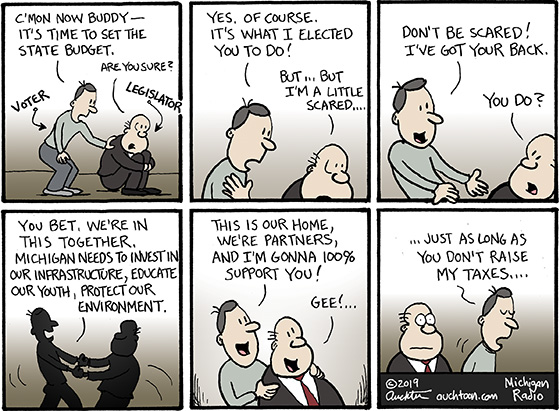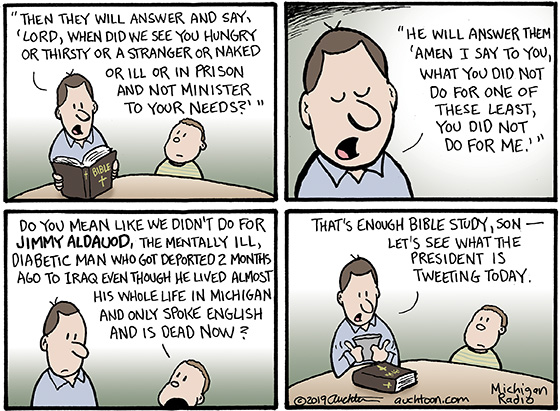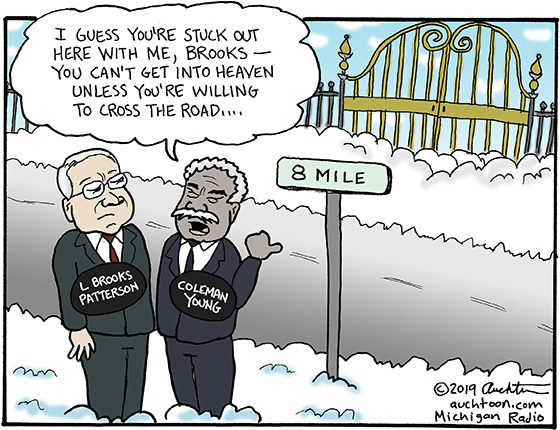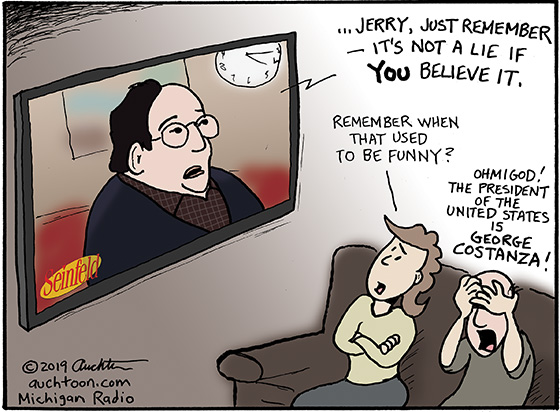Voter/Legislator Dysfunction

Several years ago I was working for a software company that got bought by a larger software company. They wanted me to relocate. My wife and I didn’t and so they bought me out of the rest of my contract — about half a year’s pay. It was a lot of money as a lump sum in a single check!
However, when it comes in one check, the tax system assumes you get paid that kind of crazy money all the time, so it withholds a bunch of it in a higher tax bracket. It’s kind of an emotional shocker, even if you do intellectually know a lot of it will come back after you file your tax return for that year. Still, staring there at a number that was nearly half of what was actually paid to me, I was crestfallen. I said to my wife, “I’ve never felt so Republican in all my life.”
For months now Governor Whitmer and the state legislature have been doing this awkward dance around setting the state budget for the next fiscal year. Promises have been made to improve our roads, our schools, our water, but now comes the hard part of how to pay for it. And I think we voters must accept part of the blame for why it is so hard. Because at some point taxes will come due and whether we are rich, working class, or poor, if the number on our paycheck is smaller than before, we’re gonna have an emotional reaction. And there is nothing a legislator is more fearful of than getting the blame for that reaction.
Not that I’m in any way letting politicians of any stripe off the hook. They ran for the job, they get paid for the job, they should do the job right. I’m just noting that the voter/legislator relationship is, well, often dysfunctional. What’s the old joke? Our form government has to be the worst form of government…except for all the other forms of government.





